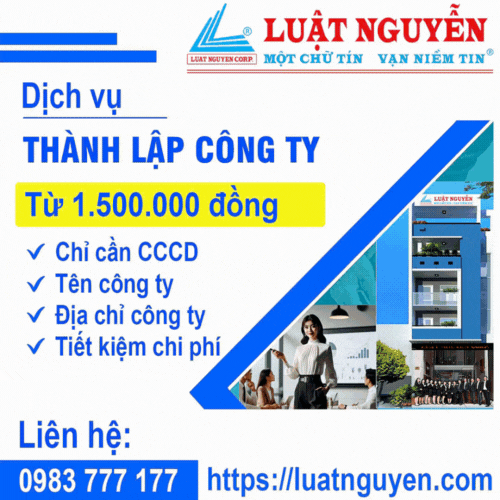Why Hoàng Hường Was Charged With Accounting Violations Instead of Tax Evasion
According to the investigation, from January 2021 to June 2025, Hoàng Hường allegedly failed to record nearly 1.8 trillion VND in revenue and misreported value-added tax (VAT) on revenue worth nearly 2.1 trillion VND. Her “business ecosystem” included 18 companies, 25 household businesses, and 44 individuals, mainly trading in dietary supplements and health-related products.

After news of the prosecution broke, social media quickly filled with claims that Hường was arrested for tax evasion involving 2.1 trillion VND, raising questions as to why she was charged with accounting violations instead. However, legal experts argue that the current charge is legally sound and procedurally appropriate at this stage.
Key Differences Between Accounting Violations and Tax Evasion
According to lawyer Phan Mậu Ninh from the Ho Chi Minh City Bar Association, the two crimes differ significantly in legal nature and intent:
| Aspect | Accounting Violations (Article 221) | Tax Evasion (Article 200) |
|---|---|---|
| Protected Legal Interest | The state’s management order in the field of accounting and finance. | The state’s authority over tax collection and public revenues. |
| Objective Conduct | Actions violating accounting rules, such as omitting assets from books, falsifying or destroying accounting documents. | Fraudulent acts to avoid tax obligations, such as issuing fake invoices, underreporting or concealing revenue. |
| Intent | Not necessarily to evade taxes; primarily violates accounting principles and procedures. | Sole intent is to evade paying taxes to the state. |
| Required Proof of Consequences | Must prove serious financial or non-financial damage (e.g., disrupted audits, major asset losses). | Must prove specific tax loss reaching the legal threshold (100 million VND or more). |
Why the Accounting Charge Is Appropriate for Now
At this stage, investigators have only established that Hoàng Hường failed to record large amounts of revenue and misstated tax filings, which are accounting violations.
There is not yet sufficient evidence proving intentional fraud to evade taxes or a specific quantified tax loss.
Therefore, charging her under Article 221 is a cautious and legally correct first step. If further investigation uncovers evidence of intentional deception and actual loss to the state budget, authorities may reclassify the case as tax evasion or add additional charges under Article 200.
A Complex Case of “Revenue Concealment” Through a Corporate Network
Experts consider this case a textbook example of using an interlinked business ecosystem — multiple companies, household businesses, and individuals — to split and conceal revenue, making it difficult for tax authorities to track real income flows.
Such actions not only violate accounting regulations but also undermine financial transparency and tax management. Because of its complexity, investigators must carefully verify intent, methods, and actual fiscal damage before drawing final conclusions.
In short, the decision to prosecute Hoàng Hường for “violating accounting regulations causing serious consequences” is legally justified at the current stage. However, if future findings reveal fraudulent intent and proven tax losses, prosecutors may upgrade the charge to tax evasion.
This case highlights the risks of manipulating multi-entity business networks to obscure financial activity — and serves as a stark warning for companies to comply strictly with accounting and tax laws.
Ý kiến bạn đọc
Những tin mới hơn
Những tin cũ hơn
Luật sư Trần Đình Phúc: Người thầm lặng kiến tạo nên những giá trị bền vững tại Luật Nguyễn
Trong hành trình hơn 25 năm phát triển của Luật Nguyễn, bên cạnh những bước tiến mạnh mẽ và thành tựu đáng tự hào, không thể không nhắc đến những con người đã đặt nền móng và gắn bó trọn vẹn với sự nghiệp chung. Luật sư Trần Đình Phúc là một trong số ấy. 1. Người đồng hành từ những ngày đầu...
- Đang truy cập121
- Máy chủ tìm kiếm1
- Khách viếng thăm120
- Hôm nay5,659
- Tháng hiện tại146,816
- Tổng lượt truy cập1,549,605
-
 Cập nhật địa chỉ trụ sở Công an cấp xã tại TPHCM sau sáp nhập
Cập nhật địa chỉ trụ sở Công an cấp xã tại TPHCM sau sáp nhập
-
 Địa chỉ 19 Tòa án nhân dân (TAND) khu vực TP.HCM sau sáp nhập
Địa chỉ 19 Tòa án nhân dân (TAND) khu vực TP.HCM sau sáp nhập
-
 Từ ngày 1.7: Cách ghi địa chỉ trên hóa đơn điện tử thay đổi
Từ ngày 1.7: Cách ghi địa chỉ trên hóa đơn điện tử thay đổi
-
 Thông tư 40/2021 :Quy định về nghĩa vụ thuế đối với hộ kinh doanh
Thông tư 40/2021 :Quy định về nghĩa vụ thuế đối với hộ kinh doanh
-
 Hóa đơn GTGT xuất cho khách cá nhân có bắt buộc ghi CCCD?
Hóa đơn GTGT xuất cho khách cá nhân có bắt buộc ghi CCCD?












